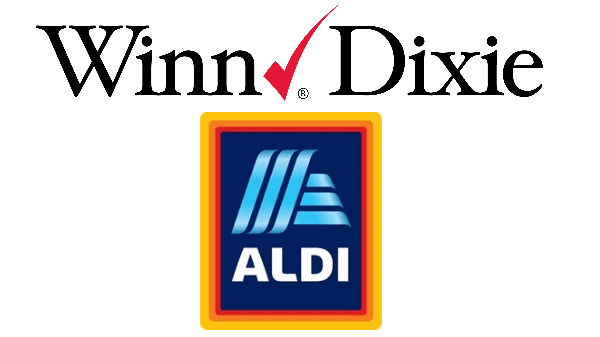When Batavia, IL-based Aldi BB #:116756 said it is buying 400 Winn-Dixie BB #:110823 and Harveys locations, I was shocked. It wasn’t that Southeastern Grocers is divesting its portfolio of stores – many in the industry expected that for some time now.
Aldi, in the U.S., doesn’t *do* acquisitions. I can recall coverage early in my career when Aldi started adding fresh produce and expanding its presence beyond the Midwest. I talked to a spokesperson who said the company only grows organically, not through acquisition.


Then, the company started its massive expansion a few years ago, spending billions to grow store count and coverage. The plan was to become the third largest grocer by store count in the U.S., a feat it achieved in 2022.
Aldi will have about 2,400 stores by the end of 2023, compared to Kroger’s 2,800 and Safeway/Albertsons’ 2,300. Walmart is No. 1 with about 3,500 supercenters and a total of about 4,600 with all banners included.
Aldi’s growth strategy has benefited from the German discounter strategy of barebones boxes with few features and few employees. They can drop a location in a fraction of the time it takes to build a traditional grocery store.
But what they can’t do as fast is snap up prime real estate for these stores. Buying Winn-Dixie and Harveys locations – stores that are already catering to value-oriented consumers, in locations that are already established as grocery – is a huge leg up on expansion.
Aldi already has stores in the Southeast, but not as many as they’d like. With consumers feeling the pinch of inflation and tight grocery budgets, demand is high for a deep discount option. Lakeland, FL-based Publix Super Markets has a strong following, but a bad reputation when it comes to price.
Save-A-Lot doesn’t come close to the quality Aldi has been putting out recently, and Walmart doesn’t offer the fast in-and-out shopping experience. Dollar General, which has expanded its produce presence rapidly over the past few years, is right on Aldi’s heels, though it is considerably farther behind when it comes to produce assortment.
But what will Aldi do with a location as big as some of these Winn-Dixie stores?
CEO Jason Hart indicated the retailer may look into leasing some of the space to other businesses. The chain’s European stores are a good example of how it integrates into existing retail sites.
Hart also said Aldi plans to keep some locations of Winn-Dixie and Harveys up and running. I expect Aldi to keep a close eye on those stores and wouldn’t be surprised if we saw them up for sale again in the not-too-distant future.
I also think now that Aldi has dipped its toes into the acquisition business, there might be some opportunity for it to snap up more locations in prime grocery real estate when/if the Kroger-Albertsons deal goes through.



